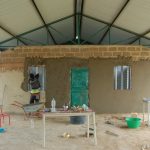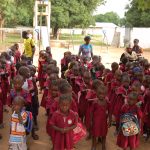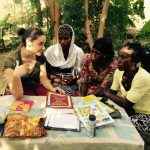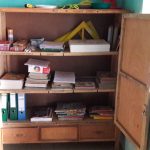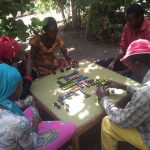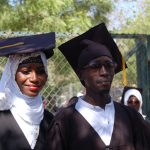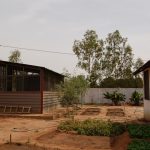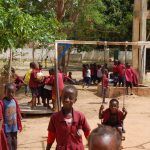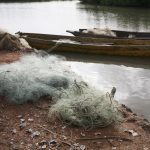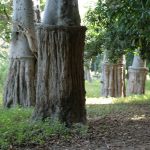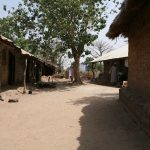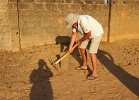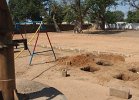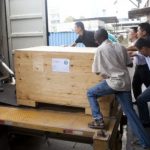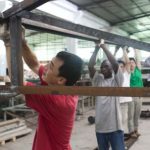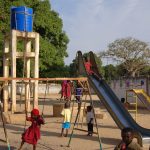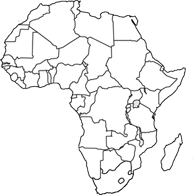Salikenni - Gambia
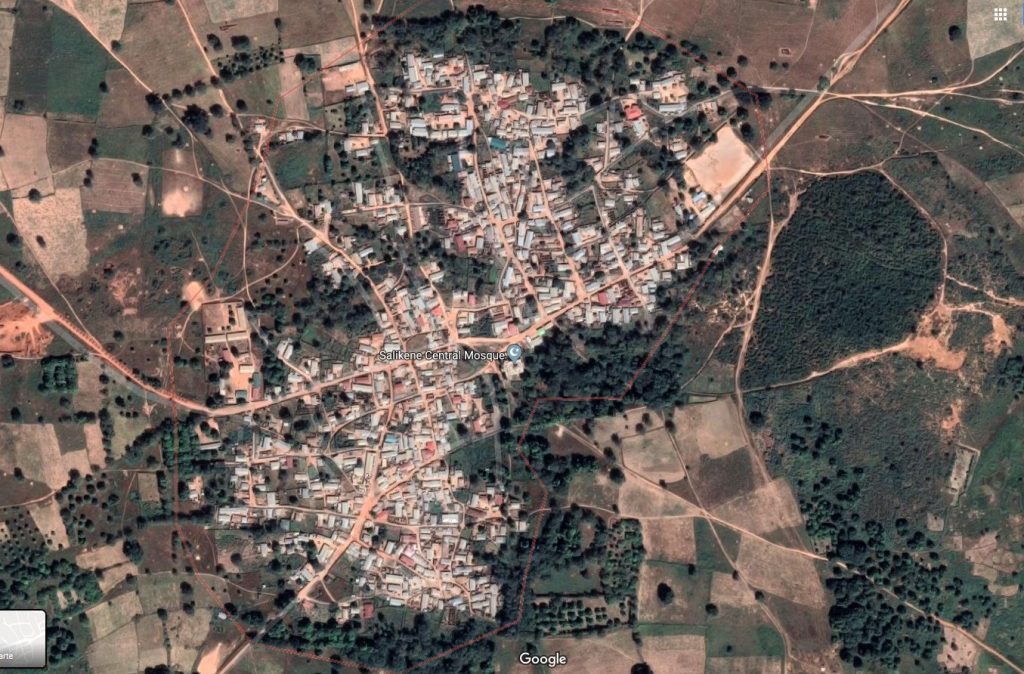
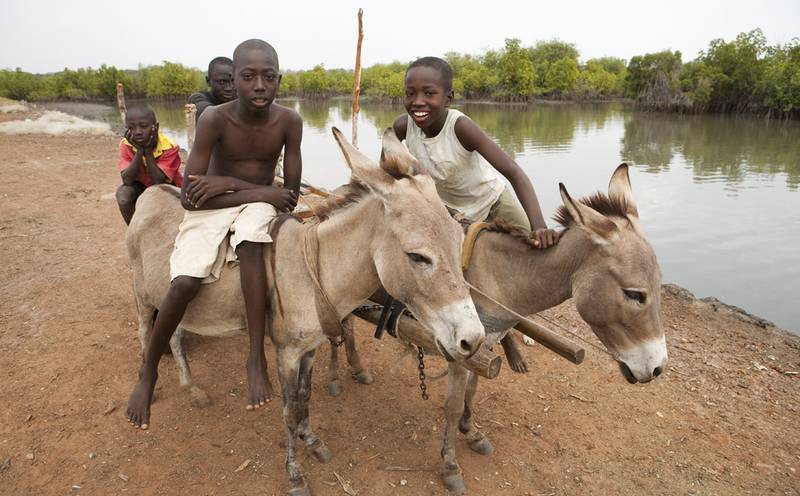
Salikenni is a village northost of the Gambia-River with about 4000 residens. Wide arid plains extend around the village. Here and there huge baobab trees stretch into the blue sky. At first glance the village appears quite confusing. Apart from some slightly wider and trafficable sandy pathes many tortuous and widely branching streets leed to so-called compounds, huts grouped together that give a home large families.
The huts are made of cement blocks or mud bricks and are usually separated with correcates or bound reeds from the plot of the neighboring compounds. The compounds often consist of several buildings in which 10-30 people of different generations live together.
Our nursery school is located in the north east of the village.
In Salikenni there is a small central market, several small and rather inconspicuous shops, a health center, a youth and sports center, a state school, several mosques and of course our nursery shcool. Islam is the dominant religion in the village. For the people in Salikenni commitment to Islam is a commitment to love and peaceful co-existence. Conflicts with religious background are not yet known.
Gambia
Gambia is a republic in West Africa with a multi-party government of President Yahya Jammeh. With an area of about 11,000 square kilometers, the country is the smallest state of the continent. Gambia has about 1.7 million inhabitants.The 740 km long border follows the course of the Gambia River. With the exception of a short section of coast at the mouth of the river in the Atlantic Ocean Gambia is completely surrounded by Senegal.
On February 18, 1965 The Gambia has been included as a constitutional monarchy in the British Commonwealth and therefore independent. About five years later Gambia became a republic within the Commonwealth. On 2 October 2013, the Gambian government declared membership in the Commonwealth of Nations terminated with immediate effect. A major reason for this was that Britain as well as the human rights organization Amnesty International had critizied the human rights situation in Gambia.
Although Gambia has signed most of the international treaties for the protection of human rights, there is lack of implementation in national law. In November 2011 President Yahya Jammeh was elected for a fourth term after he came to power 1994 by a military but largely bloodless coup and was first held elections in 1996. According to the election commission he received 72% of the vote. The election, however, was widely criticized as neither free nor transparent. Islam has gained importance in public life since the takeover of President Jammeh. Gambia's population is 90 percent Muslim, nine percent Christian and about one per cent belong to traditional indigenous African religions. There is so far a peaceful coexistence between religions.
Gambia has no natural resources, which could open up economically. Agriculture, tourism and fishing are the main economic activities of the country. Two-thirds of the workforce is employed in agriculture. According to the World Bank about 58 percent of the population live below the poverty line, Gambia is 123 of 135 of the "Human Poverty Index”. The capital of Gambia is Banjul. As Banjul is located on an island, the city can not continue to expand. With around 30,000 inhabitants Banjul is only the eighth largest town of Gambia. The nearby Serekunda is by far the largest city with about 400,000 inhabitants and the economic and cultural center of the country.



Alltagsszene in Salikenni
Salikenni appears European visitors timeless at first sight. Here some goats are running around, there loads are pulled by donkey carts with air filled tires meanwhile the driver is focused to talk into his mobile. Since 2007, the village is in the rural electrification program. The main roads are lit since then, so that even a non-natives has a chance to find back to his guesthouse after sun set. Also TV is available. And whoever has a TV does not need to worry about the amount of visitors. But besides that, the evening is characterized of socializing life. In the relative cool of the evening women in colorful dresses and men in robes stroll through the streets and stop here and there for a chat with other villagers.

Das wichtigste Gut: frisches Trinkwasser
The most important asset in the village is clean drinking water. There is a large solar pump installed by the EU. If this fails - and this happens more frequently due to age -, the supply of drinking water is very limited(*).
Most people in the village are extremely poor according to our ideas. Farming is barely enough to earn a living. Many families depend on the support of relatives who work in cities or abroad. Mainly peanuts and rice are grown. In addition, some families still earn some money with fishing. For the young women and men, there are few opportunities to build a secure existence in the village. Many of the ambitious youth flee to the cities on good luck. Without education, however, the chances here are also bad. So the army of urban unemployed grows.
* Many women and girls then come with large plastic canisters to the grounds of the kindergarten and use our pump, which works perfectly thanks to its own modern solar system. To be independent of the central solar pump, in 2012 we built our own water supply (pump and water storage) on the grounds of the kindergarten. Of course, the use of our pump by all villagers can not be a permanent state, in addition, the capacity is too low and the way is too far for many residents. The association therefore endeavors to find a solution in cooperation with the EU and the Gambian authorities.
